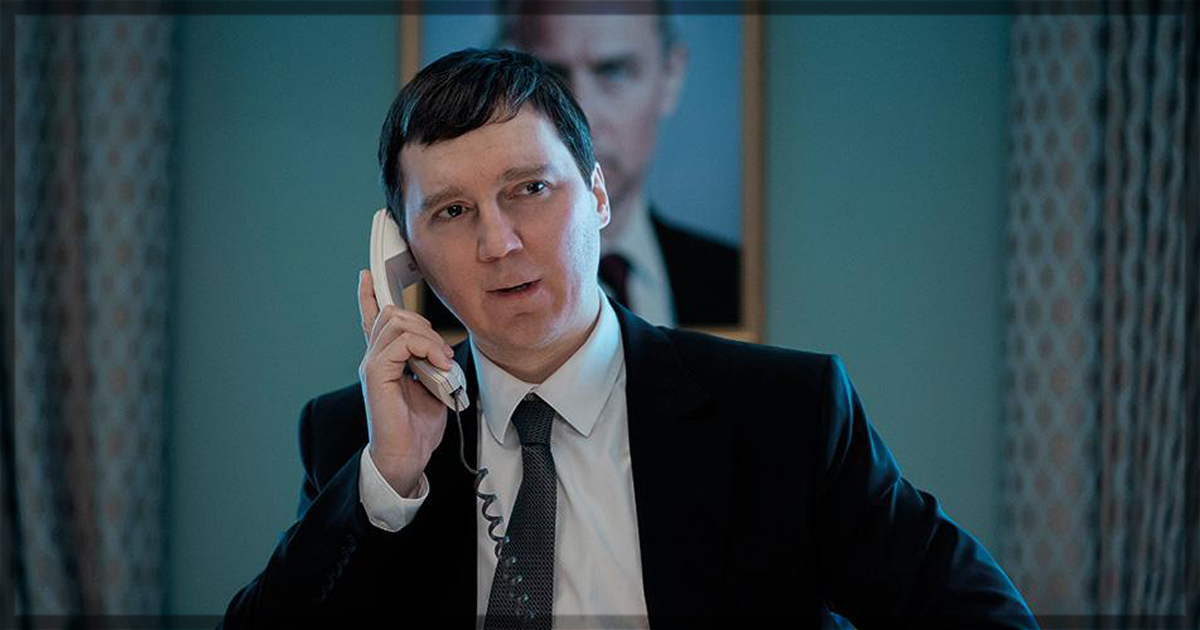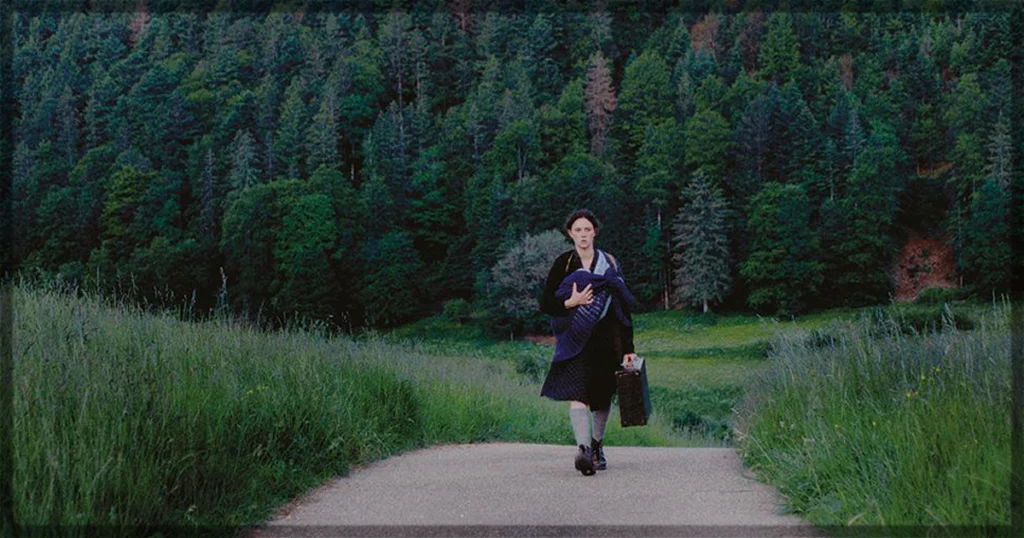Jude Law’s first appearance as Vladimir Putin is so eerily accurate the Venice Film Festival audience around me laughed in surprise. Who would have thought he could do it? Well congratulations to director Olivier Assayas and his casting director Antoinette Boulat, because the performance Mr. Law gives here is one which requires nerves of steel. It’s made very, very, very clear this is a fictional movie, not least because the central wizard, Vadim Baranov (Paul Dano, more on whom later) is not a real person. He might be based on a couple of people, but he himself is the figment of the imagination that allows a precis of the Russian history, from the fall of the Berlin Wall to the Sochi Olympics, that enabled Mr. Putin to become who he is. But the sense of global events ticked off like a grocery list lumbers the movie with too much self-importance, and the deliberately distancing set-up is like the glass cases protecting museum exhibits. There could have been something raw and refreshing in here if this was an international metaphor, but no. The Wizard of the Kremlin pays too much attention to the man behind the curtain and destroys the mystery of its own expert making.
Rowland (Jeffrey Wright), an American journalist and Russian specialist, has been summoned for a surprise interview at Baranov’s remote country home. Over soup and walks with the dogs Baranov recounts his own story, told in flashback starting from his surprisingly comfortable childhood. He was at university in the early 90s and therefore of age at precisely the moment when a new Russia exploded wide open. When his friends began moving into high places they brought Baranov with them. Baranov himself was interested in avant-garde theatre, and meets his big love Ksenia (Alicia Vikander doing rock-solid work) when she dogwalks a naked man through a filthy student party. But soon a wealthier man entices Ksenia away, Baranov begins working in television, and then is made an offer he doesn’t quite want to refuse. If he joins Putin’s team as his PR specialist, he will be doing more than commenting on history. He will be creating it. He might not agree with the history he is creating, but he will go down in it, one way or another. So Baranov decides to take the leap.
The work Mr. Dano does here, as a man who can see around corners and is therefore amused by people who cannot, is frankly gorgeous. His overwhelming sense of irony, which is perfectly clear even if rarely directly expressed, is a fantastic coping mechanism for modern life, and one which Russian culture has honed into a weapon. Mr. Dano’s air of mild surprise at almost everything Baranov says or hears gives the fine impression he is permanently biting back a laugh, and his soothing voiceover as some really shocking stories are told perfectly demonstrates the double-speak and double-think necessary to navigate this world. It’s an incredible and surprisingly likable performance. The differences between Ksenia’s life as an international socialite, lounging on yachts and designing jewellery collections, and Baranov’s work marketing Russia as the antithesis of the woke West, getting in bed with religious fanatics and ultraviolent racists, is a perfect contrast between ideas of freedom. That contrast is so fascinating, especially from a Western perspective, that whenever Putin shows up to read paperwork and make bone-chilling decisions in a quiet tone of voice, the movie loses its edge.
Now it would not be quite fair to say this is a remarkable parallel for the politics in another country currently being besieged by an untrustable leader, religious fanatics and ultraviolent racists, but maybe the French Mr. Assayas and his cowriter Emmanuel Carrère (who both know a thing or two about double lives) don’t know what a slam-dunk is. The choice to be completely literal, in a plot designed with as many layers as a Fabergé egg, is a big failure of nerve. Once the danger takes over the sense that the rollercoaster needs to stop lasts for far too long, and once the fascination pivots entirely to Putin the bigger picture is somehow lost.
The bigger picture is admiring how power is scripted and people are manipulated around the world, of course. There are behind-the-scenes players everywhere who will watch this for hints and tips instead of absorb the lesson of the ending. That would be a fine joke, if it was funny. As it is, the close study of an unfriendly world view and a remarkable central performance by Mr. Dano makes The Wizard of the Kremlin well worth seeing. But the filmmakers should have acknowledged the true global context of this story; with that courage this could have been something great and powerful.
The Wizard of the Kremlin (Le Mage Du Kremlin) recently played at the Venice Film Festival.
Learn more about the film at the Venice site for the title.


